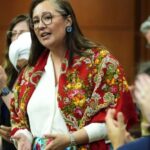As I turned my rental car onto the gravel road leading to Davidson’s health centre, I couldn’t help but notice the contrast between the endless prairie horizon and the anxiety etched on the faces of locals gathered outside. They were waiting—some patiently, others visibly frustrated—for Rural and Remote Health Minister Lori Carr to arrive for what marked the fourth stop on her summer healthcare tour across Saskatchewan.
“We’ve been through three doctors in five years,” Marion Forsberg told me, clutching a handwritten list of concerns she hoped to share with the minister. At 73, Marion has lived her entire life in this community of just under 1,000 people. “My husband needs regular care for his heart condition. Each time we get a new doctor, we start from scratch.”
Minister Carr’s province-wide tour, which began in early July, represents the Saskatchewan government’s attempt to address growing concerns about healthcare accessibility in communities where medical services have been steadily eroding. The initiative comes after years of doctor shortages, temporary emergency room closures, and increasingly longer travel times for rural residents seeking care.
When Minister Carr’s black SUV pulled up, she emerged with a small entourage of advisors and Saskatchewan Health Authority officials. Despite the 32-degree heat, she appeared composed and immediately began greeting the assembled residents by name—a politician’s skill, but one that seemed to put some at ease.
“I’m here to listen first,” Carr told the group gathered in the health centre’s modest meeting room. “We can’t fix what we don’t fully understand.”
The Saskatchewan Healthcare Crisis Tour, as some locals have unofficially dubbed it, has been traversing communities from Maple Creek to Melfort, La Ronge to Estevan. At each stop, similar concerns emerge: physician recruitment challenges, emergency service reliability, mental health support gaps, and the particular difficulties faced by seniors unable to travel long distances for care.
According to data from the Saskatchewan Medical Association, rural areas of the province have roughly one physician per 1,200 residents, compared to one per 666 in urban centers. This disparity has real consequences. A 2022 study published in the Canadian Medical Association Journal showed that rural Saskatchewan residents face 31% higher mortality rates for treatable conditions compared to their urban counterparts.
“Healthcare isn’t just a service—it’s the backbone of rural community survival,” Dr. Yasmin Khan, one of Davidson’s previous physicians who left in 2021, explained in a phone interview. Now practicing in Saskatoon, she described the challenges that drove her departure. “The professional isolation, the 24/7 on-call expectations, the lack of locum support… it’s not sustainable for most physicians, especially those with families.”
Inside Davidson’s health centre, Minister Carr sat with local healthcare workers in what appeared to be a candid exchange. When I was permitted to observe, the conversation had turned to recruitment strategies.
“We’re implementing a new rural physician incentive program that offers up to $200,000 in loan forgiveness for doctors who commit to five years in underserved communities,” Carr explained. “But we know it’s not just about money. It’s about creating supportive environments where healthcare professionals can thrive personally and professionally.”
The program builds on previous efforts that yielded mixed results. Between 2018 and 2023, Saskatchewan recruited 173 rural physicians but lost 149 during the same period, according to Saskatchewan Health Authority figures.
Later, as residents took turns sharing their experiences, 32-year-old paramedic James Whitecap described the strain on emergency services. “When local facilities close temporarily, we’re transporting patients much further. That takes our ambulances out of the community for hours. There have been times when we’ve had no available units to respond to local emergencies.”
The Saskatchewan Union of Nurses has documented over 300 temporary rural emergency room closures across the province in 2022 alone—a statistic that hangs heavy in these conversations.
When I asked Minister Carr about these challenges, she acknowledged the complexity. “There’s no single solution. We’re working on multiple fronts—from international recruitment to expanding the roles of nurse practitioners and physician assistants in rural settings. We’re also investing in telehealth infrastructure to bring specialized care to remote communities.”
The tour represents a shift in approach for the provincial government, which has faced criticism for centralized decision-making that some feel overlooks rural realities. The Federation of Sovereign Indigenous Nations has also raised concerns that First Nations communities are being marginalized in these discussions.
“Minister Carr has yet to visit any on-reserve health facilities during this tour,” FSIN Vice Chief Aly Bear noted in a statement last week. “Healthcare access for First Nations communities faces additional jurisdictional and systemic barriers that must be addressed with the same urgency.”
As the evening session in Davidson concluded, I watched Marion Forsberg approach Minister Carr directly. Their conversation was brief but appeared genuine. Afterward, Marion seemed cautiously optimistic.
“She listened. Whether anything changes, we’ll see,” she told me as we walked to the parking lot. “But at least someone from Regina came to hear us firsthand. That hasn’t happened in a long while.”
The following morning, as Minister Carr prepared to depart for her next stop in Rosetown, she reflected on what she’d heard. “These conversations are difficult but necessary. Healthcare isn’t abstract policy—it’s deeply personal. Every story I hear reinforces the urgency of our work.”
For communities like Davidson, this tour represents a glimmer of hope that their healthcare concerns might finally receive the attention they deserve. But as the minister’s SUV disappeared down the highway, the reality remained unchanged: the nearest emergency room would still be 45 minutes away if the local facility experienced another temporary closure, and recruiting the next physician would still be an uphill battle.
The real measure of the tour’s success won’t be in the listening, but in what happens after the listening ends.






